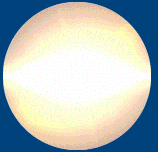The dynamic interplay of nanotechnology and immunoassay has unlocked an arena for developing next generation techniques to contribute to detecting disease biomarkers. IASST researchers led by Prof. Devasish Chowdhury and his Ph.D student Ankita Deb, developed strategic fabrication of an immunosensor by sandwich technique based on the fluorescence phenomenon of carbon quantum dots for the detection of the disease biomarker VEGF (Vascular Endothelial Growth Factor). VEGF, a biomarker for angiogenesis, is considered cancerous if found in elevated levels in the blood, and so is paramount for early detection of disease. In this work a sandwiched immunosensor was fabricated utilizing a fluorescent nanomaterial (Carbon quantum dots) synthesized from natural source employing a green microwave assisted method followed by conjugating with a detection antibody, human immunoglobulin G (IgG). The fluorescence immunosensor could detect VEGF in wide range of concentration in the range of 0.1 fg/mL to 10 pg/mL with a low detection limit of 5.65 pg/mL towards VEGF. The potentiality of this designed immunosensor was qualitatively assessed with human blood plasma samples, showing promising applicability of the fabricated system in immunoassay techniques. The work was recently published in a leading journal Analytica Chimica Acta, 2023, 340808. doi https://doi.org/10.1016/j.aca.2023.340808
Latest News :
Advt. No. 483: NIT Electrical Wiring and Supply, Fitting & Fixing of Electrical Appliances at BRACE Building at IASSTAdvt. No. 482: NIT Interior panting in the scientific staff quarter room no- B002 of IASSTList of Shortlisted and Not Shortlisted candidates for Institutional Post-Doctoral Fellowship under Life Sciences Division. Advt. No- 467 Dated: 10/01/2024
- About
- Research
- Academic
- Administration
- Facility
- Outreach
- Notice
- Publications & Media
- Recruitments
- Consultancy Services







